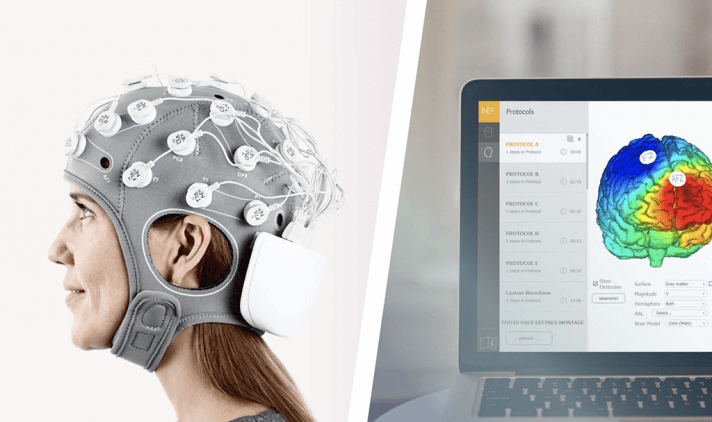Combined tDCS neurostimulation and cognitive training found to improve working memory among older adults–especially those with lower starting capacity
 Giving memory a lift: Can games and brain stimulation do it? (MedicalNewsToday):
Giving memory a lift: Can games and brain stimulation do it? (MedicalNewsToday):
A person’s working memory may decline with age or if they have dementia, Parkinson’s disease, or have had a stroke. When this occurs, the loss can affect their day-to-day quality of life, turning even simple tasks into often-demoralizing challenges.
“Working memory is the brain’s mental scratchpad,” she noted, “and it can be used to keep in mind, and work with, a variety of different types of information … Your working memory ability is important for all kinds of activities,” said (Dalhousie University Professor) Gail Eskes, “such as reading a newspaper, doing math at a restaurant to figure out a tip, making decisions, and problem-solving” … Researchers from Dalhousie, the University of Trento in Italy, and Birmingham University in the United Kingdom contributed to the study, which found that cognitive training alongside transcranial direct current stimulation significantly strengthens working memory.
The study authors refer to their system as COGNISANT, which stands for “cognitive needs and skills training.”
The study’s senior author is assistant professor Dr. Sara Assecondi of the Center for Mind/Brain Sciences at the University of Trento. She explained how the two aspects of COGNISANT work together: “In our study, working memory training and brain stimulation target the same brain area — the right dorsolateral prefrontal cortex — an area associated with processing spatial information.”
The Study:
Older adults with lower working memory capacity benefit from transcranial direct current stimulation when combined with working memory training: A preliminary study (Frontiers in Aging Neuroscience).
- Abstract: Aging is a very diverse process: successful agers retain most cognitive functioning, while others experience mild to severe cognitive decline. This decline may eventually negatively impact one’s everyday activities. Therefore, scientists must develop approaches to counteract or, at least, slow down the negative change in cognitive performance of aging individuals. Combining cognitive training and transcranial direct current stimulation (tDCS) is a promising approach that capitalizes on the plasticity of brain networks. However, the efficacy of combined methods depends on individual characteristics, such as the cognitive and emotional state of the individual entering the training program. In this report, we explored the effectiveness of working memory training, combined with tDCS to the right dorsolateral prefrontal cortex (DLPFC), to manipulate working memory performance in older individuals. We hypothesized that individuals with lower working memory capacity would benefit the most from the combined regimen. Thirty older adults took part in a 5‑day combined regimen. Before and after the training, we evaluated participants’ working memory performance with five working memory tasks. We found that individual characteristics influenced the outcome of combined cognitive training and tDCS regimens, with the intervention selectively benefiting old-old adults with lower working memory capacity. Future work should consider developing individualized treatments by considering individual differences in cognitive profiles.


